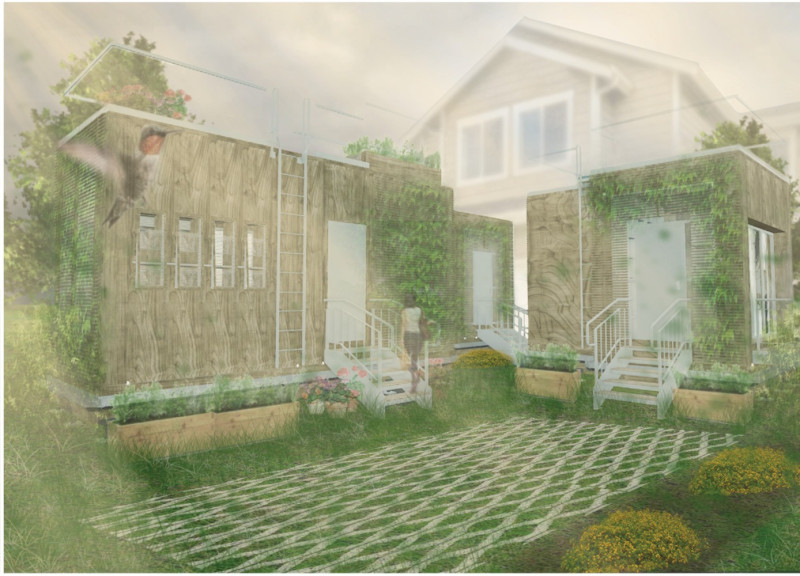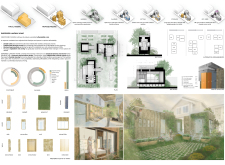5 key facts about this project
The Dispersed Laneway Home is located in Vancouver, Canada, and offers a practical solution to the urban affordability crisis. It emphasizes efficient use of space while promoting sustainable living. The design integrates indoor and outdoor environments through the inclusion of permaculture gardens, creating a thoughtful balance between functionality and a connection to nature.
Design Concept
The design prioritizes an open layout that allows for smooth transitions between inside and outside. Key areas, such as bedrooms, living spaces, kitchens, parking, and gardens, are arranged to maximize comfort and usability. This thoughtful approach to space reflects a growing trend toward smaller living options while also ensuring that residents enjoy a connected and cohesive environment.
Sustainability Measures
Several strategies are integrated into the design to address challenges faced by urban dwellers. Smaller units and basement suites are positioned as temporary housing solutions, while the use of prefabricated laneway houses helps make housing more affordable. The project also embraces backyard permaculture gardening, which not only reduces costs for residents but also emphasizes an ecological approach to living.
Material Selection
Materials chosen for the Dispersed Laneway Home include 60mm plywood sheathing, 200 mm batt insulation, 50 mm rigid insulation, and 600mm plywood cladding. These elements provide durability and contribute to improved thermal performance. The inclusion of plywood rainscreens and trellises not only supports the structure but also aids in managing rainwater, allowing the building to blend more naturally with its environment.
Community Engagement
The design encourages a sense of community through shared off-grid solutions among units. This fosters resource efficiency and promotes social interaction. The layout features outdoor seating areas that act as gathering spaces, enhancing the quality of life for residents.
The careful design of garden spaces invites residents to enjoy the outdoors, fostering opportunities for engagement and connection with one another.


















































